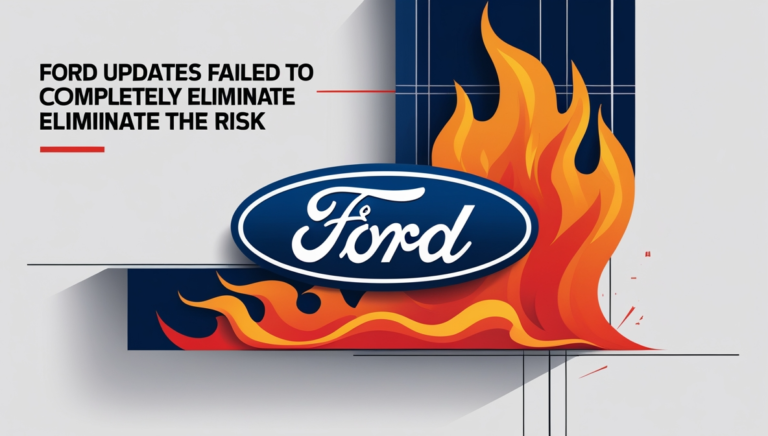Ford has been aware of this issue since 2022. The automaker’s field review committee previously approved recalls in November 2022, March 2024, and March 2025 to implement software updates intended to address the affected models' problem.
In March 2025, the committee approved a third recall, recognizing that some vehicles included in the two previous recalls did not receive the proper software update. Ford explained this was because the service tool used by dealerships to perform the update did not install the correct software version.
At the same time, the three previous recalls did not include replacing fuel injectors. Instead, the company developed a software update designed to detect fuel leaks and reduce the risk of engine compartment fires.
The updated Powertrain Control Module (PCM) software can detect pressure drops in the high-pressure fuel rail and warn the driver of a potential issue via the instrument cluster. The software can also disable the fuel pump, reduce engine power, and lower the temperature of potential ignition sources in the engine bay to reduce fire risk.
Ford dealers additionally installed a drain tube on the cylinder head to divert any leaking fuel away from the engine and other high-temperature components that could cause ignition.
However, the U.S. National Highway Traffic Safety Administration (NHTSA) remained dissatisfied with Ford’s actions, leading to the recall initiation on April 11, 2024.
Ford responded to NHTSA inquiries on May 21 and June 21, 2024, and received additional queries on September 26, 2024, as part of a safety investigation launched in April 2024.
Following this investigation, Ford’s Critical Issues Group began a detailed review on July 23, 2024, of an engine compartment fire incident after a software update. The vehicle was bought back for thorough testing, which revealed a crack in a fuel injector. However, fire damage prevented a definitive cause determination, though a fuel leak is suspected.
From August 2024 to May 2025, Ford continued evaluating the effectiveness of the safety measures by investigating fire incidents in previously recalled vehicles following PCM updates. One vehicle was found to have a fuel injector showing signs of leakage, but the leak was too minor to cause a fire. It was also confirmed that this vehicle did not receive the correct software update.
The company collected fuel injectors replaced under warranty to assess the problem’s scope. The supplier of these injectors is known to be Italian company Dumaray Flowmotion Technologies — a Tier 1 supplier. The report states about 0.03% of recalled vehicles have faulty injectors.
From April to May 2025, Ford’s investigation focused on corrosion as one cause of cracks in injectors. Testing included checking injector seals, evaluating various vehicle operating conditions, and the functionality of the engine control software. Additionally, crack sizes were studied to determine potential fuel leakage onto the road. Tests were conducted on vehicles both with and without the drain tube installed, and on vehicles that had already received the software update.

